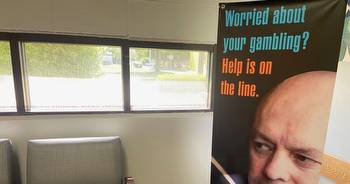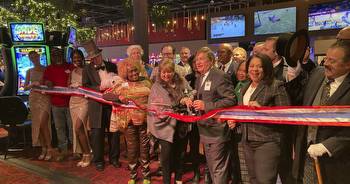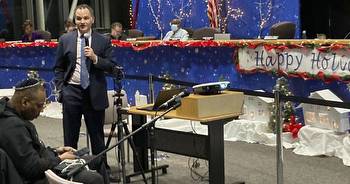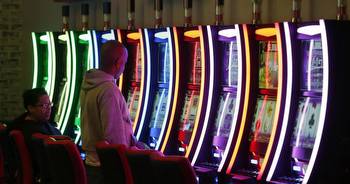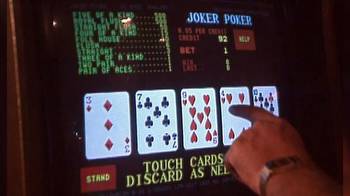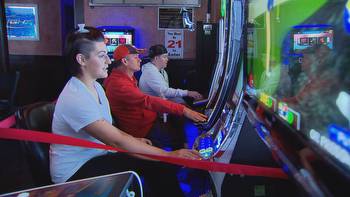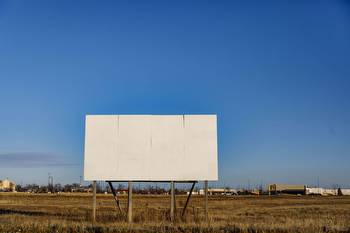With Waukegan casino on the way, health group warns about problem gamblers; ‘We want it to be part of the conversation’
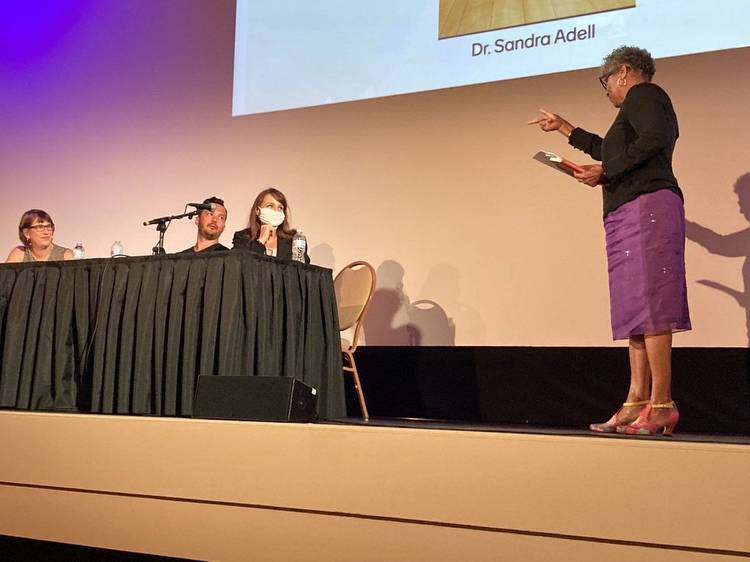
Waukegan’s long-anticipated casino remains at least two years away as some members of the community, including mental health professionals, want to be sure help is available for people with gambling addictions.
Nicasa, a Grayslake-based behavioral health organization for the last 55 years, held a panel discussion Thursday at the Genesee Theatre in downtown Waukegan to increase awareness of the impact problem gamblers can have on themselves and the community.
Elizabeth Thielen, a senior director for Nicasa who is one of 70 gaming counselors in Illinois, led the panel. She said the purpose of the forum was not to oppose gambling or the casino which is planned on 28 acres of city-owned land adjacent to the Fountain Square shopping center.
Thielen said the community must be prepared to offer help to those who need it because of an addiction to gaming. Though only between 1% and 2.2% of those who gamble are problem gamblers, their behavior can impact as many as eight other people.
“Problem gambling has not been part of the conversation,” she said before the meeting. “We want it to be part of the conversation. The conversation has been about increased jobs, increased revenue and economic growth.”
The Illinois General Assembly approved Waukegan as a casino location in 2019, and the city endorsed three potential licensees to the state. The Illinois Gaming Board must hire an investment banker to evaluate the trio before one is awarded the license. The process could take two years.
As the city waits on the gaming board, Thielen said she recognizes there is already video gaming in Waukegan. A casino will likely exacerbate the situation. There are 37 bars, restaurants or gaming parlors in town with a total of 212 machines, according to a May report from the board.
“If and when a casino comes, we want to make sure people are mobilized and prepared to help those who need it,” she said “When there is a new casino, there is an increase in problem gambling.
The panel consisted of Thielen, Stephanie Frank, a deputy director of the Illinois Department of Human Services dealing with substance abuse and gambling disorders, and two people who faced their gambling demons and overcame them.
Listing a number of adverse consequences which can arise from problem gambling, Thielen said they could include death by suicide or committing a crime. The crowd of more than 30 people heard the other two panelists talk about experiences like that.
Sandra Adell, a literature professor at the University of Wisconsin in Madison, and Ray Bozic, a corporate executive from Grayslake, said they were both arrested because of their gambling issues. Bozic thought about ending his life.
“Gambling really messed up my life,” said Bozic, who added he has not gambled in nearly three years. “I considered suicide because I didn’t know what else to do. Then I robbed two banks. I committed two felony crimes because of gambling.”
While most people do not have a problem with gambling, he said eventually he realized he had one and sought treatment. Never “feeling shameful in a meeting” helped him deal with his issues. It took time to realize it.
“I didn’t have a shut-off switch,” Bozic said. “I spent 64 hours at a poker table in Las Vegas. Poker was something I enjoyed, but when I found a bookie to bet on a Russian soccer game at 2 a.m. or a Korean basketball game at 6 a.m., I knew I had a problem.”
Adell, a professional actress as well as a professor, played slot machines once winning a $6,000 jackpot. She said she never really liked gambling, but it took her until she passed out in a casino parking lot in 2007 to realize she had a problem.
“I put myself in treatment,” she said.
When Adell was arrested for driving under the influence of alcohol going from her home in Madison to a casino in Milwaukee two years later, she decided it was time to get help.
“That was when I said, ‘enough,’” Adell said.
When a member of the audience asked if judges might modify a sentence because a person chose treatment for their problem gambling, Bozic explained he was not arrested until he had already started treatment. He spent a year sleeping in a halfway house while on work release.
“I could have been sentenced to five years under the guidelines,” he said. “I was blessed I was already in recovery.”









